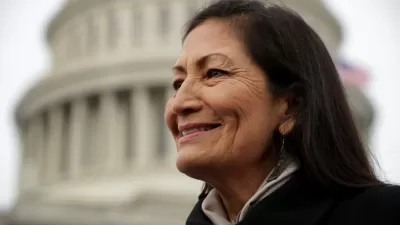Don't expect President Obama to issue a yes or no decision on whether to build TransCanada's Keystone XL pipeline until after the November elections. A pending Nebraska court case and millions of public comments were given as the reason for the delay
The State Department's decision to delay decision on the controversial pipeline, which would extend 1,179 miles from Hardisty, Alberta to Steele City, Neb. (according to its website) was greeted with predictable reactions.
"Republicans (and some Democrats) who support the pipeline denounced the delay — placing the blame on President Obama — while environmental groups hailed it as a sign that the project will not move forward," writes David Jackson.
The court case, which we posted here in February, is not from environmentalists but from private landowners trying to prevent their property from being seized through eminent domain. Coral Davenport of The New York Times writes that the State Department, which has authority in the decision because the pipeline crosses national borders, needed a "clearer idea how legal challenges to the pipeline’s route through Nebraska will be settled."
Michael Brune of the Sierra Club was predictably pleased.
"Any day without the Keystone XL pipeline is a good day because it means more dirty tar sands crude stays in the ground where it belongs," he said in a press release.
While the decision please the president's supporters in the environmental community, it was met with displeasure by some candidates in his own party facing tough reelections.
"Today's decision by the Administration amounts to nothing short of an indefinite delay of the Keystone Pipeline," stated Sen. Mary Landrieu, D-La.
Sen. Heidi Heitkamp, D-N.D., who is not facing reelection, did not mince her words in expressing her frustration.
"It's absolutely ridiculous that this well-over-five-year-long process is continuing for an undetermined amount of time."
FULL STORY: Administration again delays Keystone pipeline decision

Alabama: Trump Terminates Settlements for Black Communities Harmed By Raw Sewage
Trump deemed the landmark civil rights agreement “illegal DEI and environmental justice policy.”

Planetizen Federal Action Tracker
A weekly monitor of how Trump’s orders and actions are impacting planners and planning in America.

Why Should We Subsidize Public Transportation?
Many public transit agencies face financial stress due to rising costs, declining fare revenue, and declining subsidies. Transit advocates must provide a strong business case for increasing public transit funding.

Phoenix Announces Opening Date for Light Rail Extension
The South Central extension will connect South Phoenix to downtown and other major hubs starting on June 7.

How Housing as a Financial Product Harms Communities
Institutional buyers who treat housing as an investment product become disconnected from the impacts of higher rents, displacement, and housing instability.

Blinded by the Light: When Brighter Headlights Decrease Safety
Bright LED headlights can create glare and reduce visibility for other drivers and pedestrians.
Urban Design for Planners 1: Software Tools
This six-course series explores essential urban design concepts using open source software and equips planners with the tools they need to participate fully in the urban design process.
Planning for Universal Design
Learn the tools for implementing Universal Design in planning regulations.
Caltrans
Smith Gee Studio
Institute for Housing and Urban Development Studies (IHS)
City of Grandview
Harvard GSD Executive Education
Toledo-Lucas County Plan Commissions
Salt Lake City
NYU Wagner Graduate School of Public Service




























